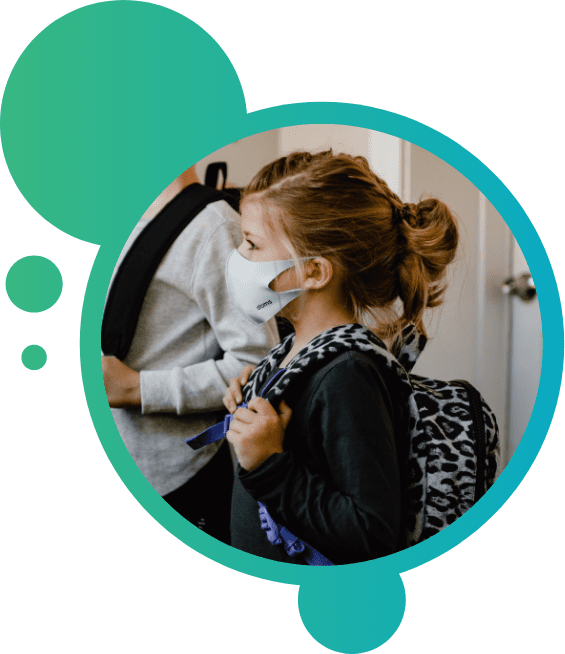Services
Useful information for children and young people
Here you can find useful information, tips and links on a range of topics.
Get support from a school nurse
by text message

ChatHealth offers support to young people with questions relating to a wide range of health and wellbeing issues including: relationships, bullying, healthy lifestyle, anxiety, drugs, smoking, stress, body worries, alcohol, self-harm and sexual health. As well as giving advice, the school nursing can signpost to appropriate services and other support.
Messages sent to the dedicated number (07507 333351) are delivered to a secure website, and a school nurse will respond to you. The service is available Monday to Friday from 9am to 4.30pm, excluding bank holidays. Someone will usually get back to you within 24 hours. If you contact us outside of office hours, you will receive a message explaining where to get help if your question is urgent, and when you can expect a response.
Although the service is confidential and you do not need to give your name, we might need to share information if we are worried for your, or someone else’s safety.
Bullying
If somebody physically hurts you, or verbally abuses you, that’s bullying.
Bullying can make you feel isolated and worthless, lonely, anxious, angry and lacking confidence. You may experience some or all of these feelings.
Ignoring bullying won’t make it go away. You need to tell someone about what is happening. You should always speak to someone, this can be a parent, carer, family member, friend, teacher, health professional or someone you trust.
Some people who are being bullied develop depression, anxiety and eating problems. They may self-harm or turn to drugs and alcohol. If you are experiencing problems like these because of bullying, it’s having an impact on your health.
School nurses and the Health and wellbeing teams can offer advice and support.
Useful links
- Young Minds is a UK charity focused on the mental health of children and young people. It has a page on bullying here.
- Bullying UK is a charity which provides advice and support to anyone affected by bullying.
- Gloucestershire County Council has advice on dealing with bullying on its website.
Smoking
Are you a smoker and want to give up? Or do you just want further information?
Stopping smoking is one of the best things that you can do and there is no better time to stop than now! Smoking is one of the biggest causes of death and illness in the UK.
School nurses and the Health and wellbeing teams can offer advice and support.
Getting help
- Your GP can give you information and advice on quitting smoking.
- You can also call the NHS Smokefree helpline on 0300 123 1044.
- There are apps that can be used to support and track the amount of days you have been smoke free. More information on the NHS Stop Smoking app here
- NHS resources and information on the effects of smoking and support to quit
Relationships
Stable relationships with friends, family and partners are important as they can influence your health and well-being.
Relationships are tricky and confusing, the important part of a relationship is that both of you are happy and that you support and care for each other. A good relationship should make you feel happy with a sense of belonging, someone you trust and are able to talk to.
If your relationship is healthy, you should feel able to discuss your concerns with your partner. Sometimes you may want to talk to someone else.
School nurses and the Health and wellbeing teams can offer advice and support.

Body image
How do you see yourself when you look in the mirror or when you picture yourself in your mind?
Our culture is filled with messages linking individual worth with physical appearance. The growth of social media has brought celebrity culture into young people’s bedrooms, and young people report feeling increasingly besieged by sexualised and unrealistic images of beauty.
School nurses and the Health and wellbeing teams can offer advice and support.
Family issues
Stable relationships with friends, family and partners are important as they can influence your health and wellbeing.
Every family is different and they are made up of people who have different needs, ideas and ways of doing things. Sometimes this means you won’t get on and there will be arguments and family problems, which is completely normal.
School nurses and the Health and wellbeing teams can offer advice and support.
Self harm
Self-harm is when you hurt yourself as a way of dealing with very difficult feelings, painful memories or overwhelming situations and experiences.
Once you have started to depend on self-harm, it can take a long time to stop.
School nurses and the Health and wellbeing teams can offer advice and support.
Useful links
- Gloucestershire Self-harm Helpline – support for people who self-harm
- Mind – information on self-harm.
- NHS – information on self-harm
Mental health
Mental health is just like physical health: everybody has it and we need to take care of it.
School nurses and the Health and wellbeing teams can offer advice and support.
Useful links
On Your Mind Gloucestershire (OMYG) is a new NHS mental health support finder signposts children, young people, parents & professionals to appropriate mental health services, including CAMHS, Tic+, Young Minds Matter and Young Gloucestershire, amongst other local services.
Use the online support finder or the directory of services on the website: www.onyourmindglos.nhs.uk
Or start the conversation by text: 07984 404388

Drugs
Are you concerned about the role alcohol and drugs play in your life?
Recreational drugs are substances people may take:
- to give themselves a pleasurable experience
- to help them feel better if they are having a bad time
- because their friends are using them
- to see what it feels like.
They include alcohol, tobacco (nicotine), substances such as cannabis, heroin, cocaine and ecstasy, and some prescribed medicines.
Recreational drugs may be:
- legal – such as nicotine and alcohol
- illegal – this means it is against the law to have them or supply them to other people; most recreational drugs are illegal
- controlled – these are drugs used in medicine, such as benzodiazepines; it is legal to take controlled drugs if a doctor has given you a prescription for them but it is illegal to have them if not; it is also illegal to give or sell controlled drugs to anyone else.
A number of substances previously known as ‘legal highs’ are now illegal – for example, mephedrone (‘meow meow’).
All drugs have some kind of effect on your mental health. They affect the way you see things, your mood and your behaviour.
These effects may:
- be pleasant or unpleasant
- be short-lived or longer-lasting
- be similar to those you experience as part of a mental health problem
- go away once the drug has worn off
- continue once the drug has worn off
For some people, taking drugs can lead to long-term mental health problems, such as depression or schizophrenia.
It is difficult to predict how you will react to a drug. You may react differently to the same drug at different times or in different situations.
This may differ depending on:
- the type of drug
- whether the drug has been mixed with other substances, and what these other substances are
- the amount you take
- the environment or social situation in which you take it
- how often you take it
- your previous experience of it
- what you want and expect to happen
- your mental state at the time
If you have a history of poor mental health, you may be more likely to experience negative effects with illegal drugs.
If you have previously had no mental health problems, you may still develop symptoms of a mental health problem from using these drugs.
If you use drugs a lot, or become dependent on them, this can have a negative impact on your day-to-day life. For example, it could lead to problems with:
- Money
- education and employment
- relationships
- housing
- low self-esteem
- finding it hard to maintain commitments, including appointments related to your drug use or mental health
- crime – either in possessing an illegal substance or to finance a habit, leading to a criminal record
- imprisonment
Healthy eating
Eating a healthy, balanced diet is an important part of maintaining good health
School nurses and the Health and wellbeing teams can offer advice on healthy eating and support you if you are concerned about your diet, eating patterns and your weight.
Useful links
- The Eatwell Guide shows how much of what we eat overall should come from each food group to achieve a healthy, balanced diet.
- Change4Life has information on foods, as well as recipes and activities.
- Information and support for eating disorders from Beat
Exam anxiety
Feeling pressure around exam time and need support?
Exam stress can start when you feel you can’t cope with revision, or feel pressure from your school or family. However there are a range of things that you can do to help deal with the stress that you might be feeling. School nurses have advice and tips on coping during this time including relaxation and mindfulness techniques.
There are other steps we can all take to improve our mental wellbeing. Learn more about the five steps for mental wellbeing.
Useful links
- The Mix offers a wide range of free, confidential support for under-25s
- Young Minds is a UK charity focused on the mental health of children and young people.
- BBC advice on getting through exam stress
- NHS advice on exam stress
- Childline has guidance on exam stress and pressure



Social media
Social media has become a space in which we form and build relationships, shape self-identity, express ourselves and learn about the world around us; it is also intrinsically linked to mental health and our wellbeing.
School nurses and the Health and wellbeing teams can offer advice and support.
Useful links